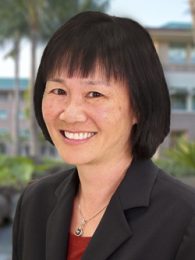
The U.S. Preventive Services Task Force (USPSTF)’s revision to its 2016 recommendation on the use of aspirin to prevent the first heart attack or stroke in adults without a history of such cardiovascular events made headlines in October. Expert panel member Chien-Wen Tseng, professor and research director in family medicine and community health at the University of Hawaiʻi at Mānoa John A. Burns School of Medicine (JABSOM),was interviewed by various news outlets on the USPSTF’s updated draft recommendation, Aspirin Use to Prevent Cardiovascular Disease: Preventive Medication.

“The latest evidence is clear. For people ages 40–59, aspirin can have a benefit but it’s small and only for some people. Folks need to talk with their clinician to see whether it’s the right decision for them and not just start aspirin on their own,” said Tseng. “As we get 60 years or older, the risks of bleeding increase and the harm cancels the benefit of using aspirin except for people who have already had a heart attack or stroke.”
Tseng said it is important to note that the task force recommendation is not for people already taking aspirin because they had a heart attack or stroke. “These individuals should continue to do so unless told otherwise by their clinician,” she said.
Tseng has served as a volunteer expert on the USPSTF for more than five years and will step down later this year. Appointed by U.S. Sen. Brian Schatz, she was the first USPSTF member to be chosen from Hawaiʻi.
“It has been an incredible honor and experience. This has been terrific for me as a family physician. I take care of our community from babies to grandparents. Knowing that the recommendations apply to all of the patients I care for is incredibly meaningful and satisfying,” Tseng said. “Plus, at JABSOM we are training our next generation of physicians and teaching them about our national guidelines on preventive care.”

